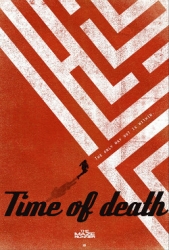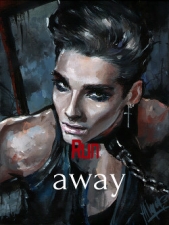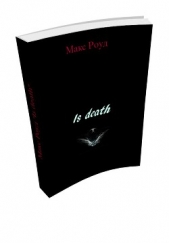A Death in Vienna

A Death in Vienna читать книгу онлайн
The sins of the past reverberate into the present, in an extraordinary novel by the new master of international suspense.
It was an ordinary-looking photograph. Just the portrait of a man. But the very sight of it chilled Allon to the bone.
Art restorer and sometime spy Gabriel Allon is sent to Vienna to authenticate a painting, but the real object of his search becomes something else entirely: to find out the truth about the photograph that has turned his world upside down. It is the face of the unnamed man who brutalized his mother in the last days of World War II, during the Death March from Auschwitz. But is it really the same one? If so, who is he? How did he escape punishment? Where is he now?
Fueled by an intensity he has not felt in years, Allon cautiously begins to investigate; but with each layer that is stripped away, the greater the evil that is revealed, a web stretching across sixty years and thousands of lives. Soon, the quest for one monster becomes the quest for many. And the monsters are stirring…
Rich with sharply etched characters and prose, and a plot of astonishing intricacy, this is an uncommonly intelligent thriller by one of our very best writers.
Внимание! Книга может содержать контент только для совершеннолетних. Для несовершеннолетних чтение данного контента СТРОГО ЗАПРЕЩЕНО! Если в книге присутствует наличие пропаганды ЛГБТ и другого, запрещенного контента - просьба написать на почту [email protected] для удаления материала
20 ROME
BISHOP DREXLER LISTENED to the audio tape one final time, then dialed the number in Vienna. “I’m afraid we have a problem.”
“What sort of problem?”
Drexler told the man in Vienna about the visitors to the Anima that morning: Monsignor Donati and a professor from Hebrew University in Jerusalem.
“What did he call himself?”
“Rubenstein. He claimed to be a researcher on the Historical Commission.”
“He was no professor.”
“I gathered that, but I was hardly in a position to challenge his bona fides. Monsignor Donati is a very powerful man within the Vatican. There’s only one more powerful, and that’s the heretic he works for.”
“What were they after?”
“Documentation about assistance given by Bishop Hudal to a certain Austrian refugee after the war.”
There was a long silence before the man posed his next question.
“Have they left the Anima?”
“Yes, about an hour ago.”
“Why did you wait so long to telephone?”
“I was hoping to provide you with some information that can be put to good use.”
“Can you?”
“Yes, I believe so.”
“Tell me.”
“The professor is staying at the Cardinal Hotel on the Via Giulia. And he’s checked into the room in the name of René Duran, with a Canadian passport.”
“I NEED YOU to collect a clock in Rome.”
“When?”
“Immediately.”
“Where is it?”
“There’s a man staying at the Cardinal Hotel on the Via Giulia. He’s registered in the name of René Duran, but sometimes he’s using the name of Rubenstein.”
“How long will he be in Rome?”
“Unclear, which is why you need to leave now. There’s an Alitalia flight leaving for Rome in two hours. A business-class seat has been reserved in your name.”
“If I’m traveling by plane, I won’t be able to bring the tools I’ll need for the repair. I’ll need someone to supply me those tools in Rome.”
“I have just the man.” He recited a telephone number, which the Clockmaker committed to memory. “He’s very professional, and most important, extremely discreet. I wouldn’t send you to him otherwise.”
“Do you have a photograph of this gentleman, Duran?”
“It will be coming over your fax machine momentarily.”
The Clockmaker hung up the phone and switched off the lights at the front of the shop. Then he entered his workshop and opened a storage cabinet. Inside was a small overnight bag, containing a change of clothing and a shaving kit. The fax machine rang. The Clockmaker pulled on an overcoat and hat while the face of a dead man eased slowly into view.
21 ROME
GABRIEL TOOK A table inside Doney the following morning to have coffee. Thirty minutes later, a man entered and went to the bar. He had hair like steel wool and acne scars on his broad cheeks. His clothing was expensive but worn poorly. He drank two espressos rapid-fire and kept a cigarette working the entire time. Gabriel looked down at hisLa Repùbblica and smiled. Shimon Pazner had been the Office man in Rome for five years, yet he had still not lost the prickly exterior of a Negev settler. Pazner paid his bill and went to the toilet. When he came out, he was wearing sunglasses, the signal that the meeting was on. He headed through the revolving door, paused on the pavement of the Via Veneto, then turned right and started walking. Gabriel left money on the table and followed after him.
Pazner crossed the Corso d’Italia and entered the Villa Borghese. Gabriel walked a little farther along the Corso and entered the park at another point. He met Pazner on a tree-lined footpath and introduced himself as René Duran of Montreal. Together they walked toward the Galleria. Pazner lit a cigarette.
“Word is you had a close shave up in the Alps the other night.”
“Word travels fast.”
“The Office is like a Jewish sewing circle, you know that. But you have a bigger problem. Lev has laid down the law. Allon is off limits. Allon, should he come knocking on your door, is to be turned into the street.” Pazner spat at the ground. “I’m here out of loyalty to the Old Man, not you, MonsieurDuran. This had better be good.”
They sat on a marble bench in the forecourt of the Galleria Borghese and looked in opposite directions for watchers. Gabriel told Pazner about the SS man Erich Radek who had traveled to Syria under the name Otto Krebs. “He didn’t go to Damascus to study ancient civilization,” Gabriel said. “The Syrians let him in for a reason. If he was close to the regime, he might show up in the files.”
“So you want me to run a search and see if we can place him in Damascus?”
“Exactly.”
“And how do you expect me to request this search without Lev and Security finding out about it?”
Gabriel looked at Pazner as though he found the question insulting. Pazner retreated. “All right, let’s say I might have a girl in Research who can have a quiet look through the files for me.”
“Just one girl?”
Pazner shrugged and tossed his cigarette onto the gravel. “It still sounds like a long shot to me. Where are you staying?”
Gabriel told him.
“There’s a place called La Carbonara on the northern end of the Campo dei Fiori, near the fountain.”
“I know it.”
“Be there at eight o’clock. There’ll be a reservation in the name of Brunacci for eight-thirty. If the reservation is for two, that means the search was a bust. If it’s for four, come to the Piazza Farnese.”
ON THE OPPOSITE bank of the Tiber, in a small square a few paces from St. Anne’s Gate, the Clockmaker sat in the cold late-afternoon shadows of an outdoor café, sipping a cappuccino. At the next table, a pair of cassocked priests were engaged in animated conversation. The Clockmaker, though he spoke no Italian, assumed them to be Vatican bureaucrats. A hunchbacked alley cat threaded its way between the Clockmaker’s legs and begged for food. He trapped the animal between his ankles and squeezed, slowly increasing the pressure, until the cat let out a strangled howl and scampered off. The priests looked up in disapproval; the Clockmaker left money on the table and walked away. Imagine, cats in a café. He was looking forward to concluding his business in Rome and returning to Vienna.
He walked along the edge of Bernini’s Colonnade and paused for a moment to peer down the broad Via della Conciliazione toward the Tiber. A tourist thrust a disposable camera toward him and pleaded, in some indecipherable Slavic tongue, for the Clockmaker to take his photograph in front of the Vatican. The Austrian wordlessly pointed toward his wristwatch, indicating he was late for an appointment, and turned his back.
He crossed the large, thunderous square just beyond the opening in the Colonnade. It bore the name of a recent pope. The Clockmaker, though he had few interests other than antique timepieces, knew that this pope was a rather controversial figure. He found the intrigue swirling about him rather amusing. So he did not help the Jews during the war. Since when was it the responsibility of a pope to help Jews? They were, after all, the enemies of the Church.
He turned into the mouth of a narrow street, leading away from the Vatican toward the base of the Janiculum park. It was deeply shadowed and lined with ocher-colored buildings covered in a powdery dust. The Clockmaker walked the cracked pavement, searching for the address he had been given earlier that morning by telephone. He found it but hesitated before entering. Stenciled to the sooty glass were the words ARTICOLIRELIGIOSI. Below, in smaller letters, was the name GIUSEPPE MONDIANI. The Clockmaker consulted the slip of paper where he’d written the address. Number 22 Via Borgo Santo Spirito. He had come to the right place.
He pressed his face to the glass. The room on the other side was cluttered with crucifixes, statues of the Virgin, carvings of long-dead saints, rosaries and medals, all certified to have been blessed by il papa himself. Everything seemed to be covered with the fine, flourlike dust from the street. The Clockmaker, though raised in a strict Austrian Catholic home, wondered what would compel a person to pray to a statue. He no longer believed in God or the Church, nor did he believe in fate, divine intervention, an afterlife, or luck. He believed men controlled the course of their lives, just as the wheelwork of a clock controlled the motion of the hands.























